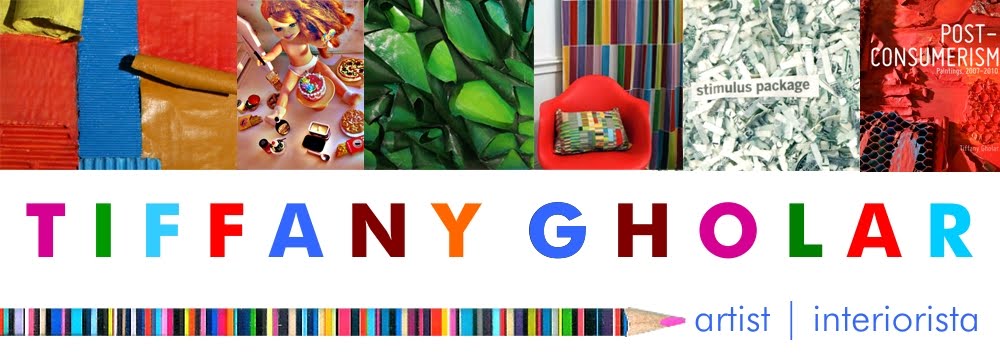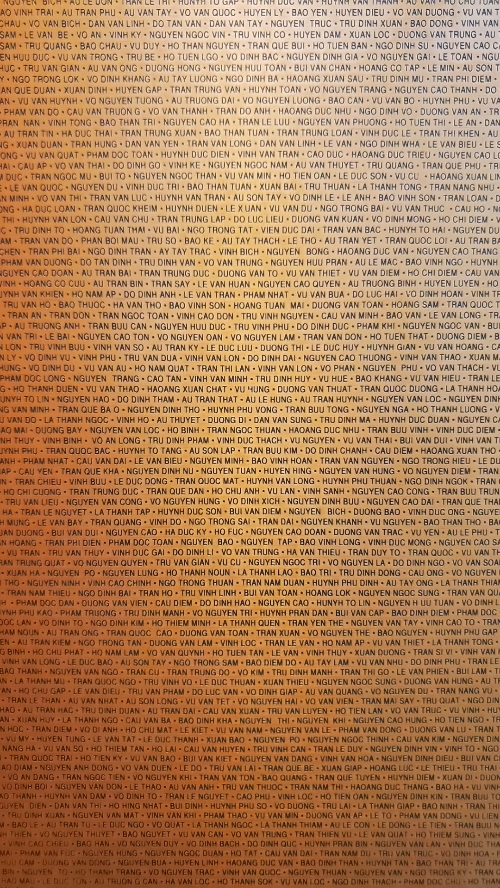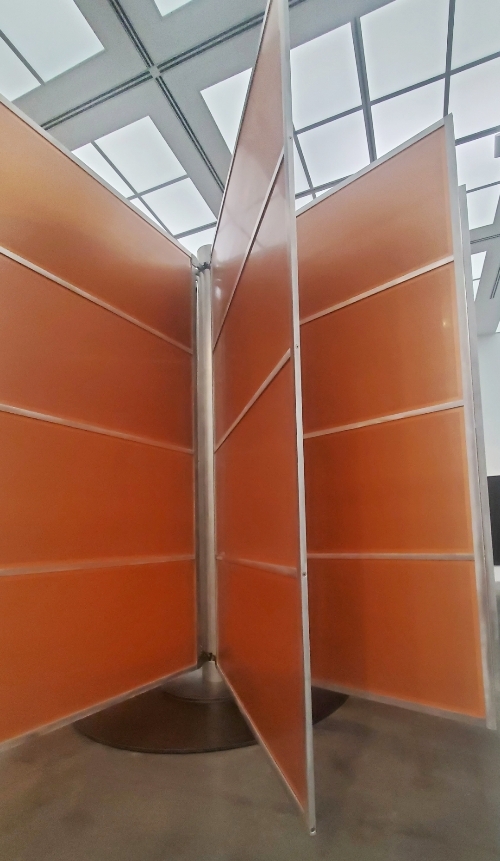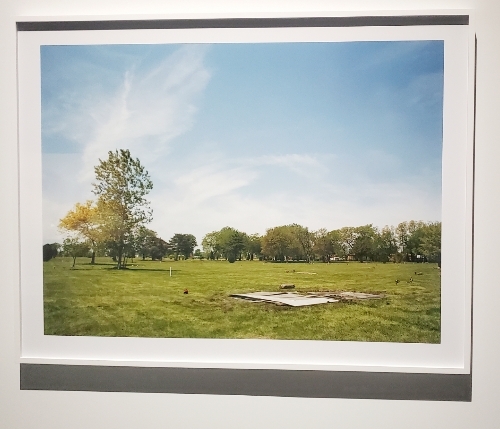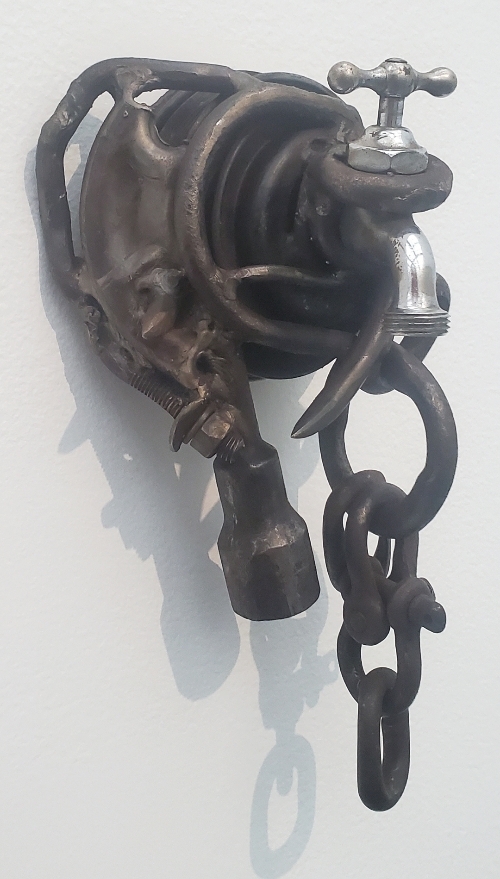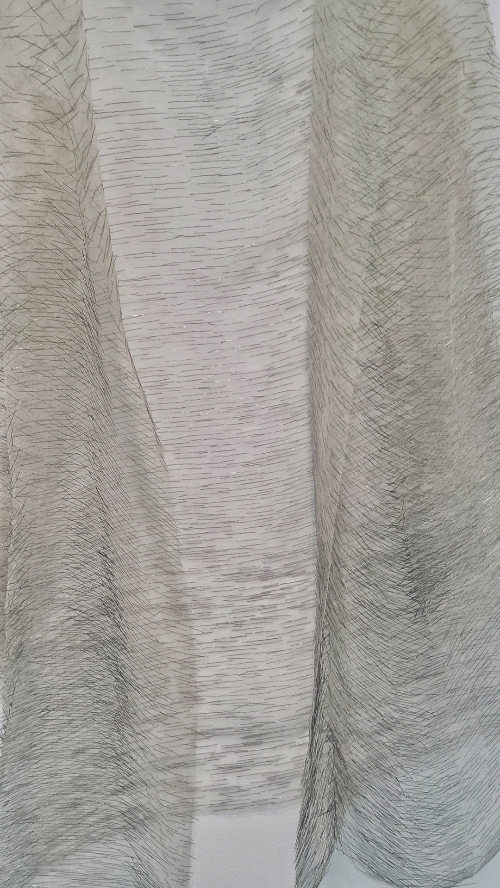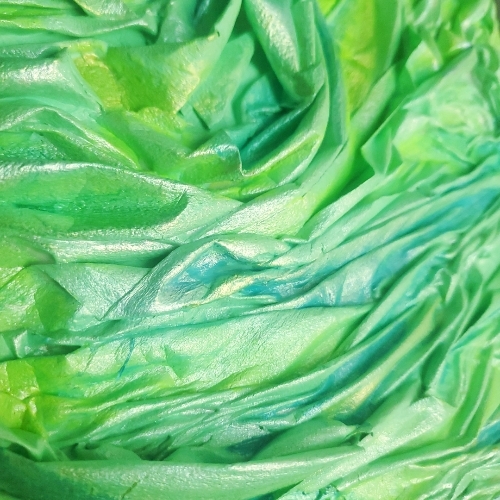Going back to school to get my "useless" art degree is the only post-secondary educational experience that I don't feel ambivalent about. High school and college were unrewarded sacrifices. My MFA program in fiction was a badly-timed mistake. Design school was the beginning of an unrequited love affair. But getting a Master's Degree in painting was one of the best things I ever did, even though I had to borrow money to do it. A lot of artists die when they're 27, but for me, that was the age when I got my life back. That was when I decided to become an artist. I've been thinking about that decision a lot recently because of current events.
As the news of
the president's student loan forgiveness plan spread throughout social media, the usual onslaught of outrage came with it. I've seen it before. I've seen it for the past 10+ years, since that's how long I've been in online groups with other student debtors who have been pushing for some kind of relief from the burden we all carry. Nothing that anyone is saying against it is new, insightful, or original, nor are the painful emotions that I feel in response to their statements. After all these years I'm tired of feeling like I need to explain why the things I've studied—arts and humanities—are useful. I think I've wasted enough time trying to justify my existence in the world. All my life I've felt like the whole world has told me that everything I'm passionate about is useless. Yet the "useless" things that I love have always been the things that have given my life meaning.
When I was about halfway through design school, I had a plan. My plan was to get a good job at an interior design firm right after graduation, apply for an MFA program in painting, and get my degree part-time while I worked. Or maybe if I stayed at my then-current job, Home Depot would pay for my MFA while I worked my way up to being a window treatment designer and then a whole-house designer. I could write the tuition off as a business expense. My loans for my previous educational endeavors would be in deferment. I would have a dedicated art studio to work in at school. I thought I'd be getting married and my living expenses would be lower as a result. I thought I would have opportunities to make a good salary that increased every year. I thought I'd have enough money. I thought I had a pretty decent plan. But as I detailed
on this blog and
my other blog, that's not what happened. That good design firm job never materialized. Home Depot closed our store and laid us all off. I spent the fall of 2006 in a state of panic and desperation. My desperation led me back to working in retail as a seasonal stockroom associate, then to work for a general contractor who sexually harassed me, then back to retail to sell carpet 25 miles from home. My desperation led me to a spiral of anxiety and depression and the only way out was to do something that actually mattered to me. Why not get another degree since the one that was supposed to be practical wasn't getting me anywhere? What was another loan to my wretched credit score? If I was going to be broke anyway, why not go ahead and be an artist? Nothing else was working.
I wanted to go back to school right away. I couldn't wait any longer. So I applied to a state school that had rolling admissions. I had positive memories of Governors State. The summer right after I graduated from college, I taught a crafting class to Upward Bound students in a summer program that was being held on campus. A Black man who appeared to be in his 40s or 50s, perhaps a Governors State University student or faculty member, saw me in the hallway with my hodgepodge of supplies. When he asked me about the things I carried and I told him it was for an arts and crafts class he said, "That's great! We need more artists." I never forgot that tiny bit of encouragement. Really that, and the rolling admissions, the
sculpture park, the less expensive tuition, and the fact that the school's interior architecture is vaguely reminiscent of
the high school I graduated from all factored into my choice to go there.
As I
chronicled in more detail in my first art book, I got off to a rough start in graduate school, despite my enthusiasm. But eventually I did find my way and figure out what I wanted to do. And when I did, the world opened up for me. I knew who I was: an artist. I had something to say about myself. I had a point of view. I started this blog. I finally joined social media, something I'd been avoiding because I felt so ashamed that my life wasn't going the way I hoped it would and didn't want my former classmates and coworkers to know. I met other artists and I met professors who encouraged me. I made art in a big studio with other students. I started attending and participating in art shows. And when the recession officially began, I wasn't as devastated as I would have been because I had escaped from retail. I had found a much better job and working environment as a part-time executive assistant at a nonprofit full of dynamic women. Though I saw the art museum jobs I had been considering applying for after graduation disappear when the economy crashed, deciding to be an artist meant deciding to get a day job to support myself, and that was what I did.
My Master's program gave me something that I couldn't get from YouTube tutorials or a free online classes: time to focus on my work. It gave me something that continuing education art classes could not: creative license to do the experimental abstract work I felt compelled to do as opposed to the traditional still life, portrait, and landscape art instruction they offered. It gave me access to professors who taught me so much. It enabled me to create a body of work and taught me how to write an artist statement.
But you're not supposed to want to be an artist.
"Haven't you ever heard the term 'starving artist?'" A former employer (who had told me to my face how "unimpressive" she found my resume, and made fun of how much I had earned working retail when speaking with mutual acquaintances behind my back) laughingly scoffed when I told her I was going to graduate school.
I guess this is supposed to be the part in this post where I cite research about careers in the arts and link to arts foundations that have diligently compiled data on how much money arts tourism for cities or something, but the purpose of this post is not to justify my interests with facts and figures. Why bother? It's the same thing I've heard since I was a child. I knew what I loved, but adults often told me that I shouldn't do it. Art was supposed to be a hobby.
"You can become a lawyer / doctor / CEO and still do your art on the side," they told me.
Art was the dessert and not the vegetables.
Art was too frivolous for smart people like me to do.
Going to graduate school to study it in my late 20s was in defiance of all that. It was reconnecting to a part of myself that had long been denied. I had heeded the warnings. I had tried to comply. I had gone to a math and science high school where there was so little time for any subjects outside of those areas that I had to choose between art and music. (I wanted to do both.) I tried to convince myself it was the right choice because impressing prospective colleges was all that was supposed to matter in my life. I had vaguely thought of art schools but was quickly deterred after a devastating encounter with a representative from the School of the Art Institute told me with a loud, dramatic flourish that I should have drawn "a thousand shoes!" for my portfolio. There hadn't been time to draw all those shoes while I was trying to impress the colleges by focusing on academics. I had tried to get into art classes right away my first year of undergrad, but was dismissed by a professor whose abrupt judgement of my portfolio was that I had "no sense of composition" and made me wait a miserable year before I was allowed into his practically remedial intro to art class, the prerequisite for everything I actually wanted to do.
Going to graduate school meant picking up where I had left off after finally getting to take painting classes my fourth year of college. I had taken a detour. I had been convinced that writing was a better path than art. I knew I was burned out but I enrolled in a fiction writing MFA program because I felt pressured to do so and I felt like a failure after dropping out. I had enrolled in design school thinking it would be the ideal compromise between my artistic visions and my need to earn a living. But I still hadn't given myself permission to be myself.
Going to graduate school for painting meant allowing myself to be myself. I was not a failed novelist / screenwriter / copywriter / interior designer / c-suite something-or-other. I was the artist I had always been. My life was not a consolation prize or a backup plan. It was a life worth living. Art made it worth it.
These are things you can't put into a spreadsheet or quantify or calculate. These are things that didn't factor in when I tried to be practical by researching my potential starting salary in interior design and measuring that benefit against the cost of repaying my loans. I was old enough to know these things. I wasn't an impulsive teenager when I made the choice to go back to school that time. I knew about credit scores and debt-to-income ratios and retirement savings and investing in the stock market. I thought I was being responsible. How could I have known that there would be another recession just in time to sabotage what could have been my career?
"You should have learned to code!" some jerk techbro would likely retort.
I've seen that a million times, too. And it hurts when they say that because my effort to learn to code almost made me fail out of college. I suck at coding and I learned that the hard way. I paid the price with my GPA.
"You should have joined the military!" they often say.
As if it would have made sense for me to have signed up to risk my life and limbs in wars I didn't believe in (and had signed petitions against!) just to get discounted or free tuition.
"You should have learned a trade!" they say, as if everyone has a knack for hairstyling, drywall hanging, or plumbing. I don't.
The real issue is that for some of these insufferable people, any major would have been the wrong major. Sure, they tell us all to pull ourselves up by our bootstraps, but that's the last thing they want. They want us to suffer. They want us to stay in our places. They want us immiserated and mired in debt. They want someone to look down upon and scorn. They hate the idea of upward mobility for anyone but themselves. How dare we dream to rise above our stations? How dare we decide to do something other than follow in our parents' footsteps? They want some form of feudalism with themselves at the top. They want our debts to grow and grow until they're so impossible to repay that we will yearn for the sweet release of death. They want to sneer, "See, I told you so!" at us on our deathbeds. They want the unkept promise of a better life through education to be the bait in a trap that imprisons us forever. Maybe deep down they know how mediocre and untalented they are and don't want anyone else to compete.
I'm tired of them trying to make me feel like there's something wrong with me because I pursued the things I'm good at. I took advantage of the options available to me at the time. There were so many roadblocks on the linear path I'd hoped to take. Some were caused by those who came before me pulling up the ladders behind them faster than I could finish climbing. Others came in the form of employers that keep moving the goalposts, asking for another degree, another certification, another license, another software program... There will always be someone more experienced, smarter, faster, younger, prettier, thinner, younger, cooler, more popular. And though the art world has numerous challenges, in comparison to the corporate world, it's given me far more opportunities to express myself, be creative, share my work, and get my name out there. It's been an environment in which my work is more readily allowed to speak for itself.
Going back to school to study painting took me from the misery of a misaligned life to the inner peace that comes from doing what I was meant to do. It allowed my wounded psyche to recover from the chronic injuries inflicted upon it by living a life that didn't fit me. During that time I found a reprieve from knocking on doors that wouldn't open. These are things that cannot be measured, not in a capitalist, consumerist framework, anyway. These are the things that some might say reflect the true purpose of getting an education. One alma mater calls it "the life of the mind."
But that's a point of ambivalence for me. Frankly, I think that flowery language about "the life of the mind" allows college career placement offices to get away with not doing their jobs. I don't think I've ever met a prospective employer who cared about the life of my mind. If college had functioned as the career accelerator I had been promised that it was, perhaps I wouldn't have felt the need to enroll in a for-profit school to get another degree. If there had been more to my undergraduate job fairs than recurring visitors like Goldman Sachs and the CIA, if any company of value had ever seen me as someone worth taking a chance on, if internships and entry-level positions in creative fields actually paid living wages... It hurts to think about it. I did my best, but it was never good enough. I had a plan, but it didn't work. Being berated for doing what comes naturally to me doesn't hurt as much as it used to, but sometimes I still ponder these things, painful as they are.
My loan balances doubled after a decade of dithering and delay in Washington. Imagine if there had been some sort of forgiveness or refinancing solution back then. Imagine if there had been career options for me to avoid educational debt altogether that weren't limited to coder, sales rep, soldier, spy. Things would be so different. Unfortunately I've spent my adulthood in a culture that insists that I am not allowed to be my true self and still have a traditional career.
The path I've taken is a rejection of the shame that some would try to make me feel for the choices that I've made regarding my education. It's allowed me to be autonomous and self-directed, to have a creative vision and see it through. And while most of my dreams for my art practice still have yet to come
true, choosing to study art certainly has been a more rewarding
alternative than continuing down the pointless path that I was on
before.
